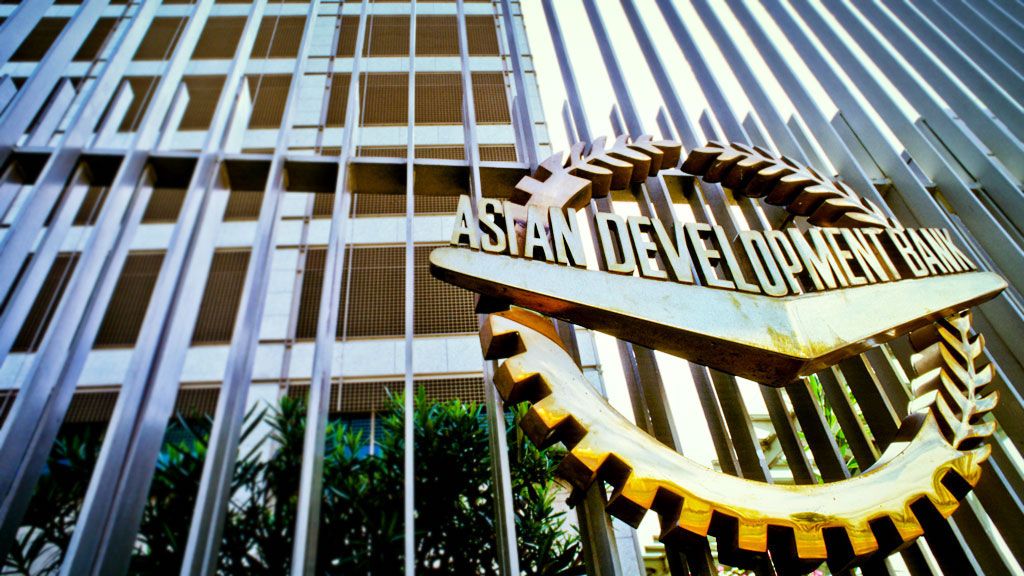News Flash
News Flash

DHAKA, April 9, 2025 (BSS) - Consumption and investment will grow moderately in the country, driven by strong remittance inflows.
But, the trend can be partly offset by contractionary monetary and fiscal policies and investor caution, said the Asian Development Bank (ADB).
Global tariff increases are also expected to affect Bangladesh's exports and economic growth over the course of time, according to ADB’s latest report, the Asian Development Outlook (ADO) April 2025, released today.
On the supply side, it said services growth is expected to be slower due to political uncertainty, financial sector vulnerability, and reduced household purchasing power.
Agricultural growth is likely to moderate following repeated floods, while industry growth is expected to improve marginally with a rebound in manufacturing aided by export growth, added the report.
The Bangladesh chapter of the report was launched today at the Bangladesh Resident Mission of the lending agency in the capital’s Agargaon area.
ADB Country Director for Bangladesh Hoe Yun Jeong made the opening and closing remarks as well as responded to the queries of the reporters. ADB Country Economist Chandan Sapkota made a power-point presentation.
The ADO, April 2025 report said that Bangladesh's gross domestic product (GDP) is projected to grow by 3.9% in fiscal year (FY) 2025, before increasing to 5.1% in FY2026.
The GDP growth in India is expected to grow at 6.7 percent in FY25 while that of Pakistan at 2.5 percent.
Despite growth in Bangladesh's exports in the garments sector, the slower growth forecast reflects weaker domestic demand amid political transition, risks of natural disasters, industrial unrest, and high inflation. Bangladesh's economic growth was 4.2% in FY2024.
“Despite external and domestic headwinds, Bangladesh's economy remains resilient, which can be fortified by implementing crucial structural reforms,” said ADB Country Director for Bangladesh Hoe Yun Jeong.
“Bangladesh should diversify its economy beyond the readymade garments sector by fostering private sector development. Enhancing resilient infrastructure, improving energy security, strengthening financial sector governance, and attracting foreign investment are crucial to accelerating growth, creating jobs, and boosting competitiveness.” He added.
The report said inflation is forecast to accelerate from 9.7% in FY2024 to 10.2% in FY2025 due to stifled competition in wholesale markets, inadequate market information, supply chain constraints, and the depreciation of the taka.
The current account deficit is anticipated to shrink from 1.4% of GDP in FY2024 to 0.9% of GDP in FY2025 as the trade deficit narrows and remittances rise.
The growth forecasts were finalized prior to the 2 April announcement of new tariffs by the US administration, so the baseline projections only reflect tariffs that were in place previously.
However, ADO April 2025 does feature an analysis of how higher tariffs may affect growth in Asia and the Pacific.
In his power-point presentation, Country Economist Chandan Sapkota said that reforms in investment policy and business-friendly environment is critical to attract investment, boost competitiveness, and ensure smooth and sustainable LDC graduation.
He said current deficit is expected to further narrow in FY2025 and FY2026, driven by an improving trade balance and strong remittance inflows.
Citing that downside risks to remain elevated, Chandan said full implementation of the US tariff announced in early April and further US trade policy shifts could worsen the outlook, and large uncertainties remain.
The ADB Country Economist also emphasized on streamlined reform needed to attract FDI and boost private investment, simplifying licensing and business procedures; improving inter-agency and policy coordination, leverage BICIP to cut red tapes and improve regulatory transparency.
Chandan also suggested for joining WTO’s Investment Facilitation for Development to guide reforms as well as empowering BIDA to lead on policy coherence and signal investment readiness.
Working with its members and partners to solve complex challenges together, ADB harnesses innovative financial tools and strategic partnerships to transform lives, build quality infrastructure, and safeguard the planet. Founded in 1966, ADB is owned by 69 members of which 49 are from the region.